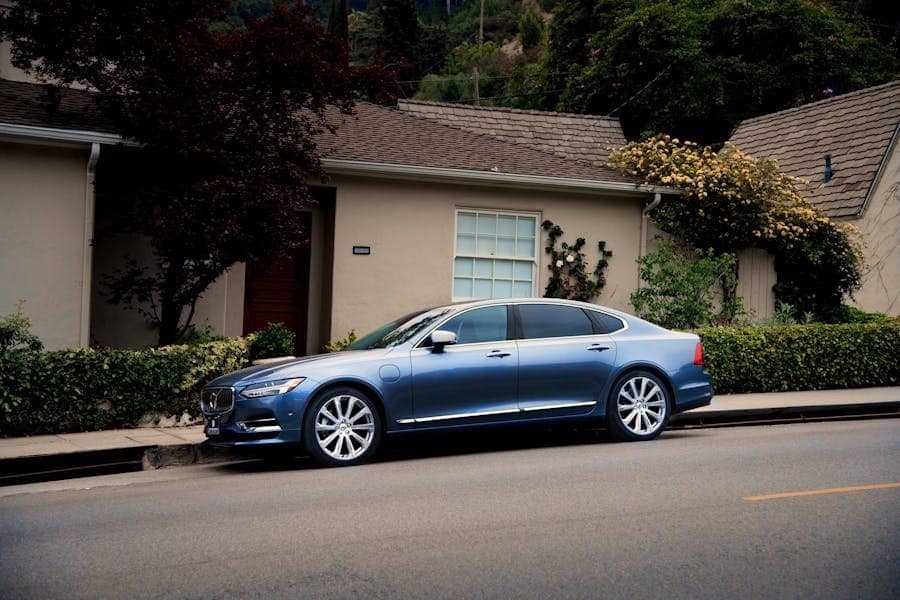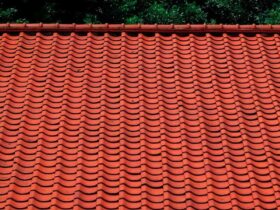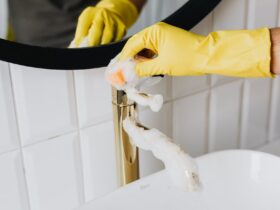Seal your driveway every two years for optimal protection against damage and moisture penetration. Regular sealing extends the lifespan of your driveway by preventing cracks and deterioration.
Your driveway plays a crucial role in the curb appeal and functionality of your property. Regular maintenance, including sealing, is essential to ensure its longevity and durability. By understanding the signs that indicate the need for sealing, such as faded color, cracks, or rough surfaces, you can take timely action to preserve your driveway.
Knowing when to seal your driveway can save you time and money in the long run, while also enhancing the overall aesthetic appeal of your property. Regular sealing not only protects your driveway but also adds value to your home.
Signs Your Driveway Needs Sealing
If you notice the color of your driveway has faded, or there are cracks, roughness, or pits in the surface, it may be time to seal it. Additionally, if you can’t remember the last time you sealed it, it’s probably due for a fresh coat. Regular sealing can prevent damage and extend the lifespan of your driveway.
Faded Color And Appearance
One of the most obvious signs that your driveway needs sealing is when the color has faded. The natural effects of UV rays, water, and other weather elements can cause the driveway to lose its original color and appearance. Sealing the driveway helps to restore its original color and appearance, making it look brand new.
Cracks And Surface Damage
Another sign that your driveway needs sealing is when there are cracks or holes in the surface. These cracks and holes can lead to more significant damage if left untreated. Sealing the driveway helps to fill in these cracks and holes, preventing further damage and extending the life of the driveway.
Rough Or Pitted Surface
If you notice that the surface of your driveway is rough or pitted, it may be time to consider sealing it. Over time, the surface of the driveway can become rough due to exposure to the elements and heavy traffic. Sealing the driveway helps to smooth out the surface, making it safer and easier to drive on.
No Recent Sealing
If you can’t remember the last time you sealed your driveway, it’s probably time to do it again. Industry standards recommend sealing a new driveway after one year or one winter. For older driveways, industry standards recommend sealing every two years to allow the sealer to wear away before resealing.
By paying attention to these signs, you can determine when it’s time to seal your driveway. Sealing your driveway is a preventative measure that can significantly extend its lifespan and save you money in the long run. Whether you have a new or old driveway, sealing is an essential part of regular maintenance to keep it looking great and functioning properly.
Initial Driveway Paving And Sealing
When it comes to maintaining your driveway, timing is everything. Once your driveway has been freshly paved, it’s important to understand the optimal timing for applying a sealant. Proper timing ensures that the sealant effectively protects your driveway from the elements and extends its lifespan. Let’s explore the key considerations for sealing your newly paved driveway.
Post-paving Waiting Period
After the initial paving of your driveway, it’s crucial to allow an adequate waiting period before applying a sealant. Typically, it’s recommended to wait around 90 days before sealing a newly paved driveway. This waiting period allows the asphalt to cure and settle, ensuring optimal adhesion of the sealant.
Sealant Curing Time
Once the sealant has been applied to your driveway, it’s essential to consider the curing time. The curing time can vary based on the type of sealant used, as well as environmental factors such as temperature and humidity. In general, most sealants require 24 to 48 hours to fully cure before the driveway can be used.
Best Seasons For Driveway Sealing
When it comes to maintaining your driveway, one important task is sealing it regularly. By applying a protective coating, you can extend the lifespan of your driveway and prevent costly repairs. But when is the best time to seal your driveway? Let’s explore the advantages of sealing in the spring and the benefits of sealing in the fall.
Advantages Of Spring
Spring is a great season to seal your driveway for several reasons:
- The weather is typically more favorable, with warmer temperatures and less precipitation. This allows the sealer to cure properly and bond effectively with the asphalt surface.
- Sealing in the spring helps protect your driveway from the damaging effects of UV rays, which can cause the asphalt to deteriorate over time.
- By sealing in the spring, you can prevent water penetration and freeze-thaw damage that can occur during the winter months.
- Sealing in the spring also gives your driveway a fresh, rejuvenated look, enhancing your home’s curb appeal.
Benefits Of Fall
Fall is another optimal season for driveway sealing. Consider the following advantages:
- The cooler temperatures in the fall promote better adhesion of the sealer to the driveway surface.
- Sealing in the fall helps protect your driveway from potential damage caused by snow, ice, and freezing temperatures during the winter.
- By sealing in the fall, you create a barrier that prevents water, oil, and other substances from penetrating the asphalt and causing cracks and deterioration.
- Sealing in the fall also provides an opportunity to address any minor cracks or imperfections before they worsen over the winter months.
Whether you choose to seal your driveway in the spring or fall, it’s important to follow proper preparation and application techniques. This includes cleaning the surface thoroughly, repairing any cracks or potholes, and using a high-quality sealer suitable for your specific driveway type.
By sealing your driveway regularly in the appropriate season, you can protect your investment and ensure a durable and visually appealing surface for years to come.
Frequency Of Driveway Sealing
To maintain the longevity of your driveway, it’s recommended to seal it every two years. Signs that indicate the need for sealing include faded color, cracks, or a rough surface. Industry standards advise waiting a year or one winter before sealing a new driveway. Regular sealing prevents moisture and oil damage, making it a worthwhile investment.
Sealant Longevity
One important factor to consider when determining the frequency of driveway sealing is the longevity of the sealant. The type of sealant used and its quality can greatly affect how long it will last before needing to be reapplied. Generally, sealants can last anywhere from one to three years, but this can vary depending on various factors.
Factors that can impact sealant longevity include the type of climate in which the driveway is located and the amount of usage it receives. In areas with harsh weather conditions, such as extreme heat or cold, the sealant may deteriorate more quickly and require more frequent reapplication. Similarly, driveways that experience heavy traffic or are exposed to chemicals, oil spills, or other damaging substances may also require more frequent sealing.
Impact Of Usage And Climate
Usage and climate play a significant role in determining how often you should seal your driveway. If your driveway experiences heavy traffic from vehicles or foot traffic, it is more prone to wear and tear, which may necessitate more frequent sealing. Additionally, climate conditions can affect the durability of the sealant. Extreme temperatures, moisture, and UV exposure can cause the sealant to break down faster, requiring more regular maintenance.
It’s essential to assess the specific conditions your driveway is subjected to regularly. For instance, if you live in an area with a colder climate and are exposed to frequent freeze-thaw cycles, it is recommended to seal your driveway more often. On the other hand, if you reside in a milder climate with less drastic temperature changes, you may be able to extend the time between sealings.
Considering both the impact of usage and climate on your driveway will help you determine the ideal frequency for sealing. Regular inspections and maintenance can help identify signs of wear and tear and indicate when it’s time to reapply the sealant.
Preparing Your Driveway For Sealing
To determine when to seal your driveway, consider the weather conditions and how often it is used. Industry standards recommend waiting one year or going through one winter before sealing a new driveway. After that, it is recommended to seal coat every two years to extend the lifespan of your driveway. Look out for signs of fading, cracks, or roughness to determine if your driveway needs to be sealed.
Cleaning And Repairing
Before sealing your driveway, it’s crucial to ensure it’s clean and free of any damage. Cleaning and repairing are essential steps in the preparation process.
Sealer Application Techniques
Proper application techniques are key to achieving a smooth and durable finish when sealing your driveway. Understanding the right methods is vital for a successful outcome.
The Value Of Driveway Sealing
To maintain your driveway, seal it every 2 years or after noticing faded color, cracks, or rough surfaces. Sealing prevents damage and extends the lifespan of your asphalt or concrete.
Preventive Measures
Sealing your driveway is an essential preventive measure that can save you money in the long run. By applying a protective coating to the surface of your driveway, you can prevent moisture, oils, and other substances from penetrating the asphalt or concrete. This can help prevent cracks, potholes, and other damage that can be expensive to repair.
Extending Driveway Lifespan
Sealing your driveway can also help extend its lifespan. Asphalt and concrete driveways are exposed to the elements and can be damaged by rain, snow, and UV rays. By sealing your driveway, you can protect it from these elements and extend its lifespan by several years.
Industry standards recommend waiting at least one year before sealing a new driveway. After that, you should seal coat your driveway every two years to ensure that it remains protected.
When To Seal Your Driveway
So, when should you seal your driveway? There are a few signs to look out for that indicate it’s time to seal your driveway. If the color of your driveway has faded, there are cracks or holes in the surface, or the surface is rough or pitted, it may be time to seal your driveway. Additionally, if you can’t remember the last time you sealed your driveway, it’s likely time to do it again.
In conclusion, sealing your driveway is a preventive measure that can significantly extend its lifespan. By protecting it from moisture, oils, and other substances, you can prevent damage and save money on costly repairs. Be sure to follow industry standards and seal coat your driveway every two years to ensure that it remains protected.

Credit: www.youtube.com
Frequently Asked Questions
How Do You Know If Your Driveway Needs To Be Sealed?
Here are five signs to look out for to determine if your driveway needs to be sealed: 1. Faded Color: If the color of your driveway has significantly faded, it’s a clear indication that it needs to be sealed. 2. Cracks or Holes: If there are noticeable cracks or holes on the surface of your driveway, it’s time to seal it.
3. Rough or Pitted Surface: A rough or pitted surface indicates that the driveway has suffered damage and requires sealing. 4. Uncertain Last Sealing: If you can’t remember the last time you sealed your driveway, it’s a good idea to seal it again.
5. Industry Recommendations: Generally, industry standards recommend sealing a new driveway after one year or one winter season. Afterward, it is recommended to seal it every two years to maintain its longevity. Sealing your driveway is worth it as it helps prevent moisture, oils, and other substances from penetrating the surface, which can lead to cracks and damage over time.
How Long After A Driveway Is Paved Should You Seal It?
It is recommended to wait approximately 90 days after a driveway is paved before sealing it. This allows enough time for the asphalt to cure and set properly. Sealing your driveway helps protect it from moisture, oils, and other substances that can cause damage over time, extending its lifespan.
How Many Times A Year Should You Seal Your Driveway?
Seal your driveway every two years to maintain its condition and extend its lifespan. Industry standards recommend resealing every two years to allow the previous sealer to wear away.
Is Driveway Sealing Worth It?
Yes, driveway sealing is worth it as it extends the lifespan of your driveway by preventing moisture, oil, and other substances from penetrating the asphalt or concrete, which can lead to cracks and damage over time. Industry standards recommend sealing a new driveway after one year or one winter and resealing every two years.
Look out for signs such as faded color, cracks, holes, or rough surface to determine if your driveway needs sealing.
How Often Should I Seal Coat My Driveway?
Industry standards recommend sealing every two years to maintain protection and extend the driveway’s lifespan.
Conclusion
Sealing your driveway is crucial for longevity and protection. Look for signs like fading color, cracks, or rough surfaces. Industry standards recommend sealing every two years to maintain durability. Regular maintenance can prevent damage and extend the life of your driveway.









Leave a Reply